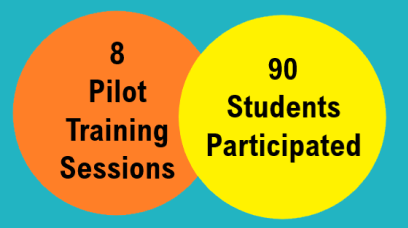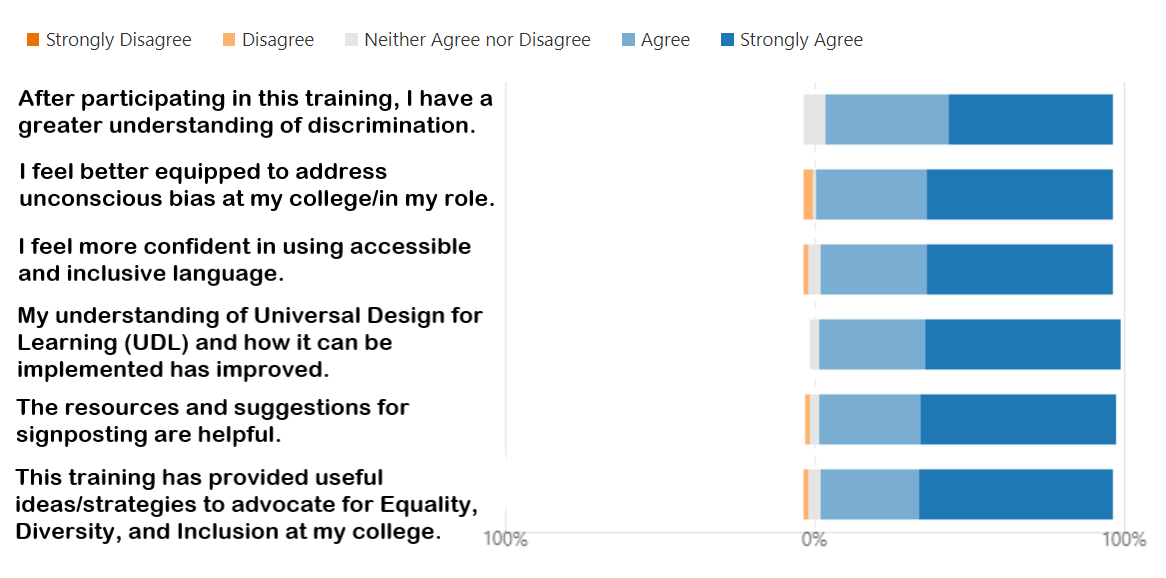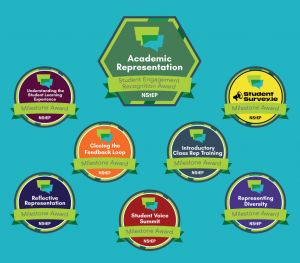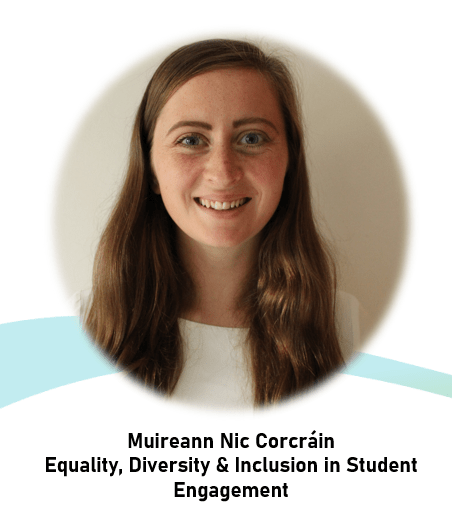About The Pilot
A pilot of NStEP’s new Representing Diversity training was run in February and March 2021. This training module was developed by NStEP Student Associate Intern, Muireann Nic Corcráin, as part of a project focusing on Equality, Diversity and Inclusion (EDI) in student engagement. The training introduces tools and resources that can help students, and class reps in particular, represent their diverse classmates and empower fellow students from all backgrounds and lived experiences to get involved in student engagement in decision-making. Class reps, in particular, have a crucial role in ensuring that higher education is an inclusive and welcoming place, where every voice is heard and every student can become involved in shaping their learning experience. NStEP is currently reviewing feedback from the pilot, and will prepare for a national foll-out of Representing Diversity training for the 2021/22 academic year.
Muireann Nic Corcráin Reflects on Developing
NStEP’s Representing Diversity Training
Coming into the role, I knew I wanted to help students by creating a more inclusive environment within HEIs and recognising the strength that diversity can bring to the table when trying to achieve this principle. In a way, you can’t achieve inclusion without recognising diversity. There is great work going on at a local level in an attempt to break down some of the most prominent barriers to an inclusive educational experience, such as access, raising awareness of different issues through campaigns and working on policy within institutions to help shape a more positive environment for students. A lot of great work has been done, but there was still a lot that could be done on a national level to give students a more equal footing in the conversation and creating student partnerships to collaboratively address these issues.
I contacted various stakeholders and organisations, such as USI, HEA, IUA, THEA, DCU Centre of Excellence, Irish Centre for Diversity, Athena SWAN, sparqs, INAR Students’ Unions, to get an understanding as to what projects and initiatives are currently occcurring within the Higher Ed sector and what could be improved upon with this project. I’m eternally grateful for all the support given to me to help navigate through a pretty big project remit to design a practical resource that students could use to become more involved within the area of EDI. I could see that a lot of work was being done on the staff side and in terms of policy development, but I believe that there needs to be more visible student partnership opportunities to ensure that these policies achieve what they set out to do for all members of institutional communities.
I started trying to figure out how best to move the conversation forward, coming to a conclusion that more people needed to become involved in those difficult conversations about creating change and addressing issues around them, with one of the biggest influences of this decision deriving from the role students played in the Black Lives Matter and in Disability Awareness campaigns coming to light, for example Trinity Co_Op. Recognising that everyone needed to be part of these conversations led me to begin exploring different ways on how we could begin to educate students and give them useful tools to begin educating themselves on various issues within the EDI sphere. This is where the idea of developing a training resource came about, which would also fit into NStEP’s aim of providing additional and advanced training programmes for student representatives. Then I had the fun job of trying to identify the content to include within the training programme and how we would deliver the resource!
My biggest challenge then was trying to narrow down the content to include and how to structure the training. Using qualitative and quantitative data via questionnaires and multiple focus groups, we were able to identify some key issues that students wanted additional training and resources in, as well as some great ideas for creating some scenario questions for students to consider in order to practically apply the skills they learned to real-life situations. This particular resource is for students, so having student input on the content and future resource development was key to getting the project up and running.
We then went through multiple drafts of the training materials, with some input from our Student Trainers, as well as holding a Train the Trainer Day for the team to become familiar with the different topics we would be focusing in on during this training programme. Alongside this, our amazing Development Coordinator, Jeffrey Cox, created a new section in the NStEP Student Portal for these training resources. The idea would be that the resource page would be used throughout the training session so that the participants would get familiar with website and the external resources we would cite throughout the training session as well. They would also have access to external sources that they could engage with in their own time to begin educating themselves on various issues within the area of EDI.
Our institutional pilots kicked off at the end of February, with open national sessions taking place during the month of March. With this being a pilot, our main aim is to see how the pilot material was received and look at ways to improve on delivery, content structure and resources for the future. The feedback has been overwhelmingly positive which has been so great to see, highlighting that people do want to engage with inclusion and diversity and that there is a demand for more resources and promotion of materials to help all students become more familiar with how to navigate conversations in this area.
Unfortunately, all good things must come to an end, and I finished in my role at the end of February. I’ve learned so much over the past few months from so many different people across the sector and I’m so thrilled that we were able to provide the pilot training that can be built upon in the future with further online module resources, more widespread delivery of the training programme across institutions in the coming years, as well as giving students the opportunity to engage with NStEP to build upon the work that has been done to date. We’ve only laid the foundations of work within the area of EDI, there’s plenty more to come in the future!




